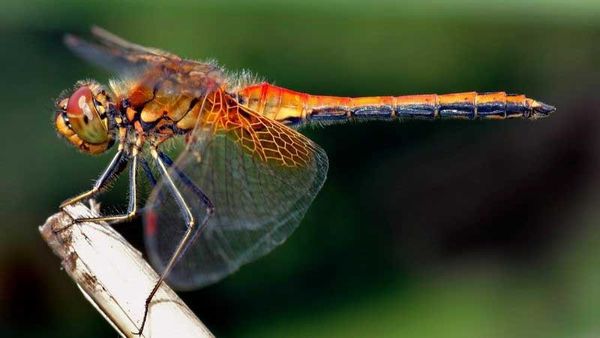Dragonflies are fascinating creatures that not only add beauty to your garden but also play a vital role in controlling mosquito populations. These remarkable insects not only consume adult mosquitoes but also feast on their larvae.

In fact, dragonflies are considered one of the most effective natural predators of mosquitoes, making them a valuable asset for keeping your yard or garden mosquito-free.
Dragonflies have exceptional vision and agility, which enables them to track and catch flying insects mid-air. They are known for their quick change of direction, making it easy for them to chase and capture their prey effortlessly. Dragonflies are also territorial, meaning they actively defend their area against other dragonflies. This territorial behavior further motivates them to hunt mosquitoes and other flying insects in their vicinity.
If you want to harness the benefits of dragonflies and keep mosquitoes away from your outdoor spaces, here are some tips to attract these helpful insects to your yard or garden:
1. Provide a Suitable Habitat
Dragonflies prefer to live near bodies of water, such as ponds, lakes, and streams. If you have a water feature like a pond or a fountain, it can serve as an enticing home for dragonflies. Alternatively, you can create a small pond or water garden in your yard, specifically designed to cater to the habitat needs of dragonflies.
2. Avoid Using Pesticides
Pesticides and harmful chemicals can be detrimental to dragonflies and other beneficial insects. To attract dragonflies, it’s important to refrain from using pesticides that could harm these delicate creatures. Opt for natural alternatives or organic pest control methods instead.
3. Consider Purchasing Dragonfly Larvae
If attracting dragonflies proves challenging, you have the option to purchase dragonfly larvae online or from a local nursery. These larvae will eventually develop into adult dragonflies and help naturally control mosquito populations in your yard.
To enhance your chances of attracting dragonflies, it’s crucial to plant the right vegetation. Dragonflies thrive in environments that offer both water and vegetation. Here are some plants known to attract dragonflies:
Joe-Pye Weed
This vibrant perennial produces beautiful white and pink flowers during the summer and becomes a hotspot for dragonflies, butterflies, and bees searching for nectar. Joe-Pye Weed thrives in wet and moist locations, making it an ideal plant to attract dragonflies. Additionally, it also serves as a habitat for monarch butterflies and their larvae.
Water Plants
Dragonflies commonly breed around water, as their offspring need places to hide. They are especially drawn to submerged and floating pond plants like eelgrass, baby pondweed, water lilies, and lotus flowers. Including these aquatic plants in your garden will provide the perfect environment for dragonflies to flourish.
Goldenrod
With its towering height and dazzling yellow flowers, goldenrod attracts a variety of pollinators, including dragonflies. Blooming in late summer, this plant offers abundant nectar for adult dragonflies. Goldenrod prefers well-drained soil and can reach a height of up to 5 feet.
Cardinal Flower
The striking red blooms of the Cardinal flower make it a favorite among dragonflies. This plant thrives in moist soil and blooms from mid-to-late summer. Growing up to 3 feet tall, it adds a vibrant touch to any water garden or pond while attracting dragonflies.
Flat Rocks
While not plants themselves, flat rocks placed around the edges of your pond or garden serve as perfect perching spots for dragonflies to bask in the sun. Consider adding a variety of flat rocks to create enticing resting places for these magnificent insects.
By incorporating a mix of aquatic plants, wildflowers, grasses, and other dragonfly-friendly vegetation, your landscape can become an inviting habitat for these beneficial insects. Creating the ideal environment will not only attract dragonflies but also contribute to a healthy and balanced ecosystem in your yard or garden.





